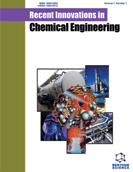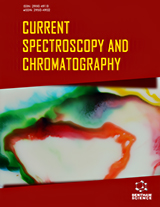Abstract
The COVID-19 emergency built pressure on US regulatory bodies to unlock the optional and short pathway of approval for urgently required pharmaceuticals to accomplish population demand for medicinal products within the shortest possible time to limit the suffering and deaths associated with insufficiency of medicinal products in need. During the pandemic, many medicinal products got emergency use authorization (EUA) according to the EUA guidelines provided by the US Food Drug Administration (USFDA). The requirement of abbreviated data submission for EUA attracted many pharmaceutical companies to launch their products as investigational drugs. Clinical data collected from the population is also permitted to get final approval. Comirnaty and Remdesivir got full approval using this regulatory tool. EUA does not ensure the existence of the medicinal product for an extended period. Whenever the emergency is over or the products are no longer needed, the USFDA revokes those according to their legislation. However, after Hydroxychloroquine phosphate and chloroquine sulfate were revoked due to failure to show efficacy, it grabbed the attention of many healthcare stakeholders in the country. It demanded more transparency in the approval pathway of present EUA guidelines. Two attributes, i.e., Current Good Manufacturing Practice exemption and expiry date extension, affect the quality of the medicinal products used during the pandemic. The most critical product distribution data, voluntary in EUA, remarkably endorse the black-marketing and shortage of specific COVID-19-related medicinal products in the pandemic situation. Amendments to the existing guidelines minimize the upcoming public health risk.
Current Indian Science
Title:Exploration & Outcomes of Emergency Use Authorization during the COVID-19 Pandemic in the United States
Volume: 2
Author(s): Simran Simran, Sabanis Chetan Dushant, Joga Ramesh and Sandeep Kumar*
Affiliation:
- Department of Regulatory Affairs, National Institute of Pharmaceutical Education and Research (NIPER), Hyderabad, India
Abstract: The COVID-19 emergency built pressure on US regulatory bodies to unlock the optional and short pathway of approval for urgently required pharmaceuticals to accomplish population demand for medicinal products within the shortest possible time to limit the suffering and deaths associated with insufficiency of medicinal products in need. During the pandemic, many medicinal products got emergency use authorization (EUA) according to the EUA guidelines provided by the US Food Drug Administration (USFDA). The requirement of abbreviated data submission for EUA attracted many pharmaceutical companies to launch their products as investigational drugs. Clinical data collected from the population is also permitted to get final approval. Comirnaty and Remdesivir got full approval using this regulatory tool. EUA does not ensure the existence of the medicinal product for an extended period. Whenever the emergency is over or the products are no longer needed, the USFDA revokes those according to their legislation. However, after Hydroxychloroquine phosphate and chloroquine sulfate were revoked due to failure to show efficacy, it grabbed the attention of many healthcare stakeholders in the country. It demanded more transparency in the approval pathway of present EUA guidelines. Two attributes, i.e., Current Good Manufacturing Practice exemption and expiry date extension, affect the quality of the medicinal products used during the pandemic. The most critical product distribution data, voluntary in EUA, remarkably endorse the black-marketing and shortage of specific COVID-19-related medicinal products in the pandemic situation. Amendments to the existing guidelines minimize the upcoming public health risk.
Export Options
About this article
Cite this article as:
Simran Simran, Dushant Sabanis Chetan, Ramesh Joga and Kumar Sandeep*, Exploration & Outcomes of Emergency Use Authorization during the COVID-19 Pandemic in the United States, Current Indian Science 2024; 2 : e2210299X269869 . https://dx.doi.org/10.2174/012210299X269869231128100928
| DOI https://dx.doi.org/10.2174/012210299X269869231128100928 |
Print ISSN 2210-299X |
| Publisher Name Bentham Science Publisher |
Online ISSN 2210-3007 |

- Author Guidelines
- Bentham Author Support Services (BASS)
- Graphical Abstracts
- Fabricating and Stating False Information
- Research Misconduct
- Post Publication Discussions and Corrections
- Publishing Ethics and Rectitude
- Increase Visibility of Your Article
- Archiving Policies
- Peer Review Workflow
- Order Your Article Before Print
- Promote Your Article
- Manuscript Transfer Facility
- Editorial Policies
- Allegations from Whistleblowers
- Announcements



















.jpeg)








